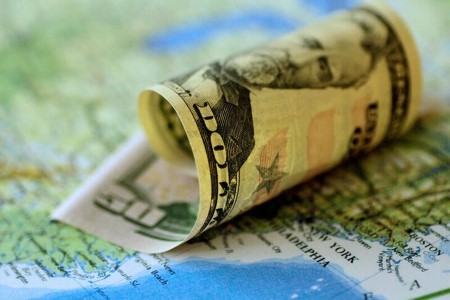




Inflation Update: Green light for easing
 DOWNLOAD
DOWNLOAD

December Economic Update: One for them, one for us
 DOWNLOAD
DOWNLOAD

Philippines Trade Update: Trade trajectories trend along
 DOWNLOAD
DOWNLOAD


Dollar supported by market caution as growth fears dominate

European stock indexes opened in the red, with investors cautious about how company earnings will hold up in the face of a global economic slowdown and high inflation.
One sixth of Europe’s STOXX 600 will report second-quarter results this week, with earnings expected to have grown 22% year-on-year, according to Refinitiv forecasts.
The U.S. Federal Reserve has signalled a 75 basis point rate hike at its July 26-27 meeting, although data last week showing inflation hit 9.1% year-on-year in June raised the possibility of a larger 100 bps hike later this year.
The U.S. dollar strengthened against the Australian and New Zealand dollars during Asian trading, although this move eased as European markets opened. At 0715 GMT, the Australian dollar was flat against the greenback AUD=D3, while the New Zealand dollar was down 0.2% at $0.6242.
Versus the Japanese yen, the dollar was up 0.2% at 136.35.
The dollar index was at 106.760, having last week fallen from the two-decade high of 109.290 it hit in mid-July =USD and analysts expect it to remain in demand.
U.S. economic growth is slowing and inflation is “way too high”, U.S. Treasury Secretary Janet Yellen said on Sunday.
“Recession fears should continue to prevent a solid recovery in risk sentiment, which should incidentally give some extra support to safe-havens (including USD) and may keep the path uneven for high-beta commodity currencies,” wrote ING FX analysts in a note to clients.
The euro was boosted to a two-week high last week by the European Central Bank raising rates for the first time since 2011. But it then fell after disappointing business activity data from France and Germany. On Monday, it was down 0.2% on the day at $1.01930.
ING’s FX analysts said the euro’s moves suggest that expectations around the European Central Bank’s policy plans will be driven more by market data in future, highlighting euro zone inflation data due on Thursday and Friday.
“We think 1.0200 could prove to be an anchor for EUR/USD for the remainder of the summer, but re-testing parity is a tangible risk in the current high-volatility environment,” ING said.
Soaring energy costs and fears of gas shortages in Europe are also weighing on the euro, with Germany largely dependent on Russian gas to fuel its export-led economy.
A survey on Sunday showed that 16% of industrial companies in Germany are cutting production in reaction to soaring energy prices.
Top Western energy companies are expected to see record-breaking profits for the second quarter running.
The British pound was down 0.1% against the dollar at $1.1993 GBP=D3, while euro-sterling was steady at 85.07 pence per euro.
British Foreign Secretary Liz Truss and former finance minister Rishi Sunak set out plans over the weekend in their campaigns to be Britain’s next prime minister.
(Reporting by Elizabeth Howcroft; Editing by Catherine Evans)
This article originally appeared on reuters.com





 By Reuters
By Reuters